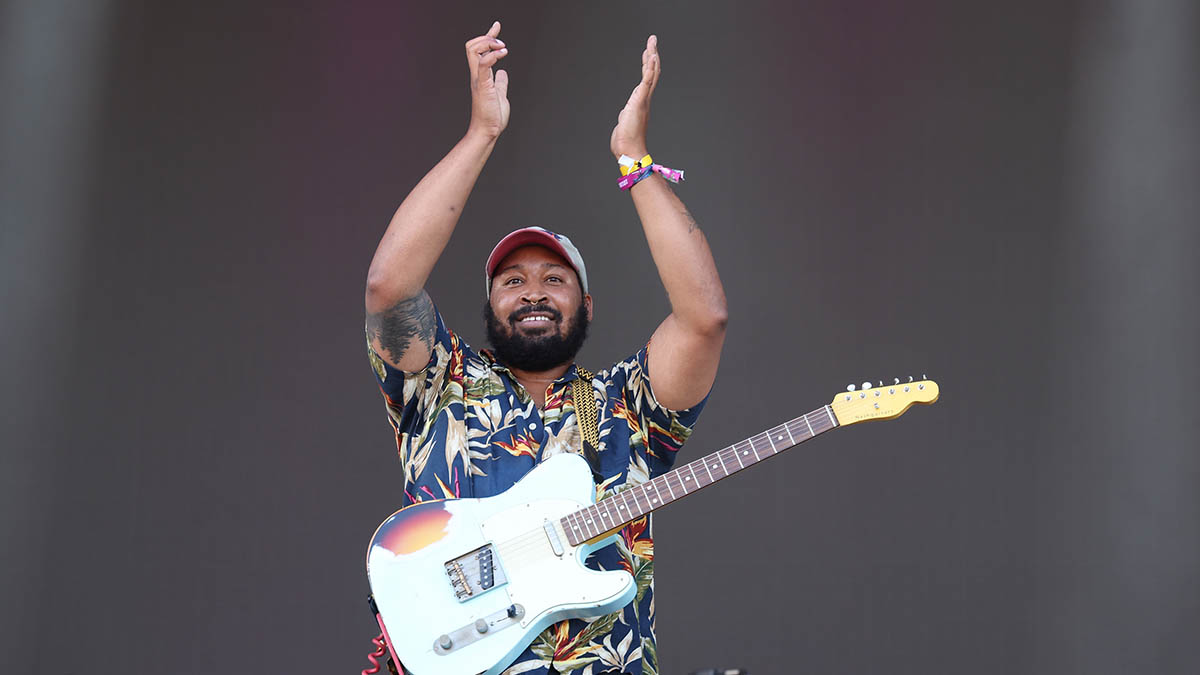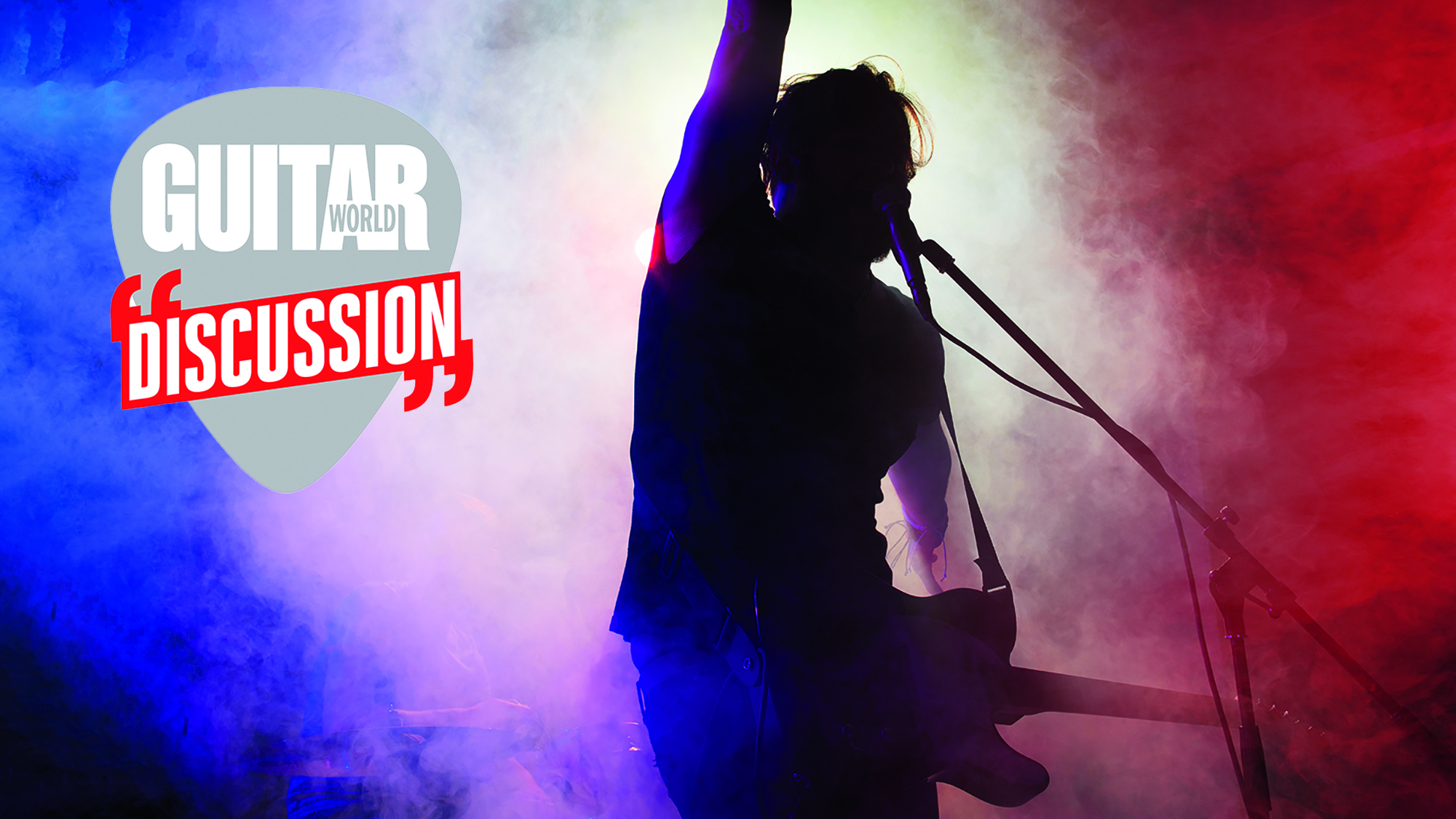Bartees Strange: “I saw a Black guitar player making contemporary music I could relate to. After that, the gates were just open”
The D.C. artist on combining TV on the Radio and My Bloody Valentine to create one of 2022's most invigorating albums

He may not have the Eye of Agamotto, but Bartees Strange – the stage moniker of Washington, D.C.-based musician Bartees Leon Cox Jr. – creates his own kind of sorcery on guitar.
Strange – who’s inspired by a wide spectrum of musical styles, including rock, blues, country, funk, hip-hop, rap, punk and hardcore – wanders freely between musical worlds and genres. His genre-bending talents are on full display on his latest album, Farm to Table.
“Through this whole journey of finding new music and always being curious about how things worked, I just developed this style or taste profile that was all of these things all the time,” Strange says. “It was almost easier for me to just be a reflection of what I was hearing and feeling in the world than to reinvent the wheels that have already been built.”
He credits bands such as TV on the Radio for inspiring his multi-dimensional sound. “I saw a Black guitar player making contemporary music that was something I could relate to,” he says. “After I saw that, the gates were just open. I felt like I could make things on guitar; I immediately got one and started learning everything I could.”
Strange also mixes it up in terms of gear. On Escape This Circus, he started out with a 12-string Gibson acoustic and doubled it with his Fender Jaguar to get a distinct layered sound.
“I was trying to get this woozy, Fear and Loathing in Las Vegas kind of vibe mixed with a country shuffle kind of thing – a spacey, ghostly, country, dark thing,” he says. “I was leaning the whole time on the whammy bar on the Jaguar, on every chord, like the Kevin Shields [My Bloody Valentine] thing where you leave your hand on the bar and you just play the chords.”
After chronicling his experiences in Oklahoma and around the globe on his 2020 debut, Live Forever, the U.K.-born Strange decided to focus more on the people closest to him on Farm to Table.
Get The Pick Newsletter
All the latest guitar news, interviews, lessons, reviews, deals and more, direct to your inbox!
“I was at a stage in my life where things I had wanted to happen for so long were happening,” he says. “There were all these new things and people, but I wanted to make sure there was always space for the people who’ve been with me my whole life… My foundation became more and more important. [The album is] about them and their roles in my life – and how grateful I am to be supported.”
- Farm to Table is out October 7 and available to preorder via 4AD.
Josh is a freelance journalist who has spent the past dozen or so years interviewing musicians for a variety of publications, including Guitar World, GRAMMY.com, SPIN, Chicago Sun-Times, MTV News, Rolling Stone and American Songwriter. He credits his father for getting him into music. He's been interested in discovering new bands ever since his father gave him a list of artists to look into. A favorite story his father told him is when he skipped a high school track meet to see Jimi Hendrix in concert. For his part, seeing one of his favorite guitarists – Mike Campbell – feet away from him during a Tom Petty and the Heartbreakers concert is a special moment he’ll always cherish.
Ozzy Osbourne’s solo band has long been a proving ground for metal’s most outstanding players. From Randy Rhoads to Zakk Wylde, via Brad Gillis and Gus G, here are all the players – and nearly players – in the Osbourne saga
“I could be blazing on Instagram, and there'll still be comments like, ‘You'll never be Richie’”: The recent Bon Jovi documentary helped guitarist Phil X win over even more of the band's fans – but he still deals with some naysayers











